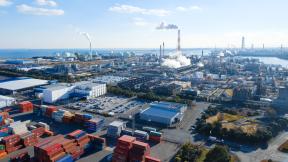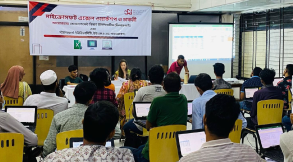Across countries, women and men allocate time differently between market work, domestic services, and care work. In this paper, we document the gender division of work, drawing on a new harmonized data set that provides us with high-quality time use data for 50 countries spanning the global income distribution. A striking feature of the data is the wide dispersion across countries at similar income levels. We use these data to motivate a macroeconomic model of household time use in which country-level allocations are shaped by wages and a set of “wedges” that resemble productivity, preferences, and disutilities. Taking the model to country-level observations, we find that a wedge related to the disutility of market work for women plays a crucial role in generating the observed dispersion of outcomes, particularly for middle-income countries. Variation in the division of non-market work is principally shaped by a wedge indicating greater disutility for men, which is especially large in some low- and middle-income countries.
STEG Working Paper Series
• Research Theme 0: Data, Measurement, and Conceptual Framing,
Research Theme 2: Labour, Home Production, and Structural Transformation at the Level of the Household,
Research Theme 3: Agricultural Productivity and Sectoral Gaps,
Cross-Cutting Issue 1: Gender
The Gender Division of Work Across Countries


Related content


























































































































